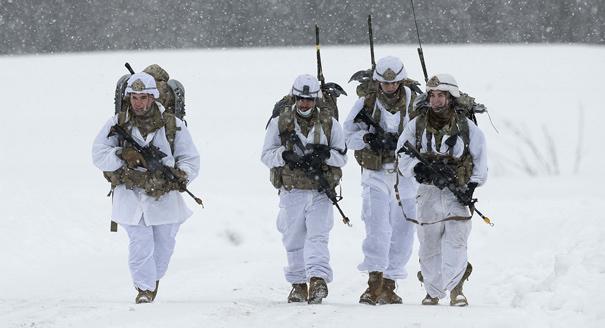Authors: Paul Stronski & Grace Kier
Affiliation: Senior Fellow & Junior Fellow at Carnegie Moscow
Organization/Publisher: Carnegie Moscow Center
Date/Place: May 17, 2021
Type of Literature: Article
Word Count: 1535
Link: https://carnegie.ru/commentary/84543
Keywords: Arctic, The US, Russia, Environmental Change, The Biden administration, Military
Brief:
As glaciers are melting in the Arctic due to climate change, new sea routes and natural resources are emerging for the countries in the region. Despite the fewer geographic rights of the US, Russia’s increasing military presence in the Arctic has prompted the US to revisit its policies. These policies do not seek a great power competition in the region with Russia, on the contrary the Biden administration is willing to have a diplomatic contact with their Russian counterparts rather than increasing tension between the countries. For the author, this effort is the result of Biden’s approach to the environmental changes. As ice continues to melt and new shipping routes open, Russia has increased its military force along its coast in the region; and the US will continue to increase its military presence as well. Specifically, the US and other Arctic states that are also NATO members, which were belittled by the former president, will continue to strengthen NATO’s military presence and relations in the Arctic. Biden would not like to increase tension in the Arctic, but as Russia strengthens it military capabilities the US will not refrain to increase its capability as well, according to the author. As it happens, the Arctic will become a new region of conflict between Russia and the US/NATO. Additionally, although China does not have a strong military presence in the Arctic, it has increasing economic interests in the Arctic as climate change gives advantage to shortened sea routes. Despite China not having territory in the region, the Arctic will eventually host new powers whose Arctic interests are increasing, and it will not be a region of conflict between only Russia and the US.
By: Berat Karadeniz, CIGA Research Intern




